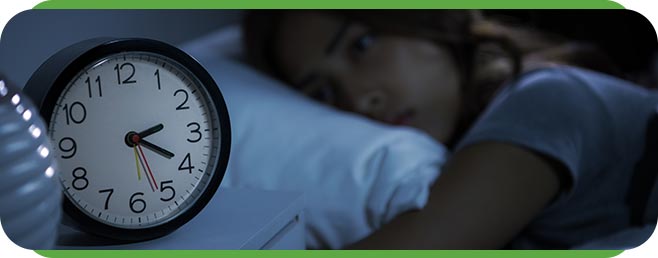What Is Sleep Schizophrenia?
Sleep disturbances are common in individuals with schizophrenia, often exacerbating symptoms like hallucinations and delusions. Poor sleep quality can negatively impact cognitive function and overall mental health. Addressing sleep issues through targeted treatments can significantly improve the well-being of those with schizophrenia. If you or someone you know is suffering from sleep schizophrenia, come to the Koala® Center For Sleep & TMJ Disorders. For more information, please contact us or book an appointment online now! We have convenient locations across the USA in Bloomington IL, Peoria/Dunlap IL, El Paso TX, and Wausau WI.


Table of Contents:
What are the common sleep problems in individuals with schizophrenia?
Can poor sleep worsen schizophrenia symptoms?
How can sleep problems be managed in patients with schizophrenia?
What are the consequences of untreated sleep disturbances in schizophrenia?
People with schizophrenia often experience a variety of sleep problems, which can worsen their symptoms and significantly impact their wellness. Up to 80% of people with schizophrenia experience some type of sleep disturbance. Common sleep issues for those with schizophrenia include:
● Poor sleep quality – Even when those with schizophrenia manage to sleep, the quality of that sleep is often poor. Patients with psychiatric disorders commonly experience frequent awakenings due to less time spent in restorative deep and REM sleep phases.
● Insomnia – Difficulty falling or staying asleep is prevalent among people who are diagnosed with schizophrenia. Insomnia may occur due to anxiety, medication side effects, or the disruptive nature of psychotic episodes.
● Night terrors or nightmares – Vivid, unsettling, or disturbing dreams or episodes of waking up in a state of terror are more common in individuals with schizophrenia than in the rest of the population.
● Sleep apnea – This sleep disorder, characterized by pauses in breathing during sleep, is more common in individuals who have been diagnosed with psychiatric disorders. Factors such as weight gain from antipsychotic medications and smoking contribute to the risk of developing sleep apnea.
Yes, poor sleep can significantly worsen schizophrenia symptoms. The relationship between sleep and schizophrenia is bidirectional, meaning that sleep problems can worsen schizophrenia symptoms, and schizophrenia can lead to sleep disturbances. This creates a vicious cycle where one condition continually aggravates the other.
Lack of sleep can heighten psychotic symptoms such as hallucinations and delusions. Moreover, poor sleep can lead to mood swings, irritability, and increased anxiety or depression. In addition, as sleep is crucial for cognitive processes such as memory, attention, and problem-solving, inadequate rest can impair these functions, making it harder for individuals with schizophrenia to manage daily tasks and adhere to treatment plans.
If you are diagnosed with schizophrenia, there are several ways you can minimize sleep disturbances caused by this psychiatric condition, including:
● Medication management – It’s essential to work closely with a physician to find the right balance of medications for you, as some sleep medications interact with antipsychotic drugs. They may recommend adjusting your antipsychotic medications or adding sleep aids to improve sleep quality.
● Cognitive behavioral therapy for insomnia (CBT-I) – CBT-I is implemented to support patients in developing healthy sleep habits and addressing behaviors that contribute to insomnia. CBT-I is effective in reducing insomnia symptoms in individuals with schizophrenia.
● Sleep hygiene practices – Good sleep hygiene plays a major role in improving the quality of your rest. A sleep doctor can help you establish a regular sleep schedule, create a restful sleep environment, and provide recommendations on how to limit caffeine and nicotine.
When you work with an experienced sleep doctor, they will thoroughly assess your concerns and unique needs to create a personalized treatment plan and successfully enhance your wellness.
Untreated sleep issues in people with schizophrenia can have severe and wide-ranging consequences, such as:
● Worsening of symptoms – Persistent sleep problems often lead to an increase in the frequency and severity of psychotic episodes, making it more challenging to manage schizophrenia.
● Physical health decline – Chronic sleep deprivation is linked to numerous health issues, such as weakened immune function, obesity, diabetes, and cardiovascular disease. These health problems can further complicate the management of schizophrenia.
● Social and occupational problems – Poor sleep can lead to relationship difficulties and make it harder to hold down a job, contributing to social isolation and economic instability.
Overall, untreated sleep disturbances can lead to a significantly reduced quality of life. The compounded effects of poor physical health increase psychiatric symptoms, and social challenges can make day-to-day living much more difficult. For support in alleviating sleep disturbances related to schizophrenia, schedule a visit with the dedicated professionals at Koala® Center For Sleep & TMJ Disorders.

Additional Services You May Need
▸ KoalaKIDZzz®
▸ Sleep Apnea
▸ Snoring
▸ TMJ Disorder
▸ Fatigue
▸ Sleep Disorders
▸ Weight Loss
▸ CPAP Alternative
▸ Oral Appliances




